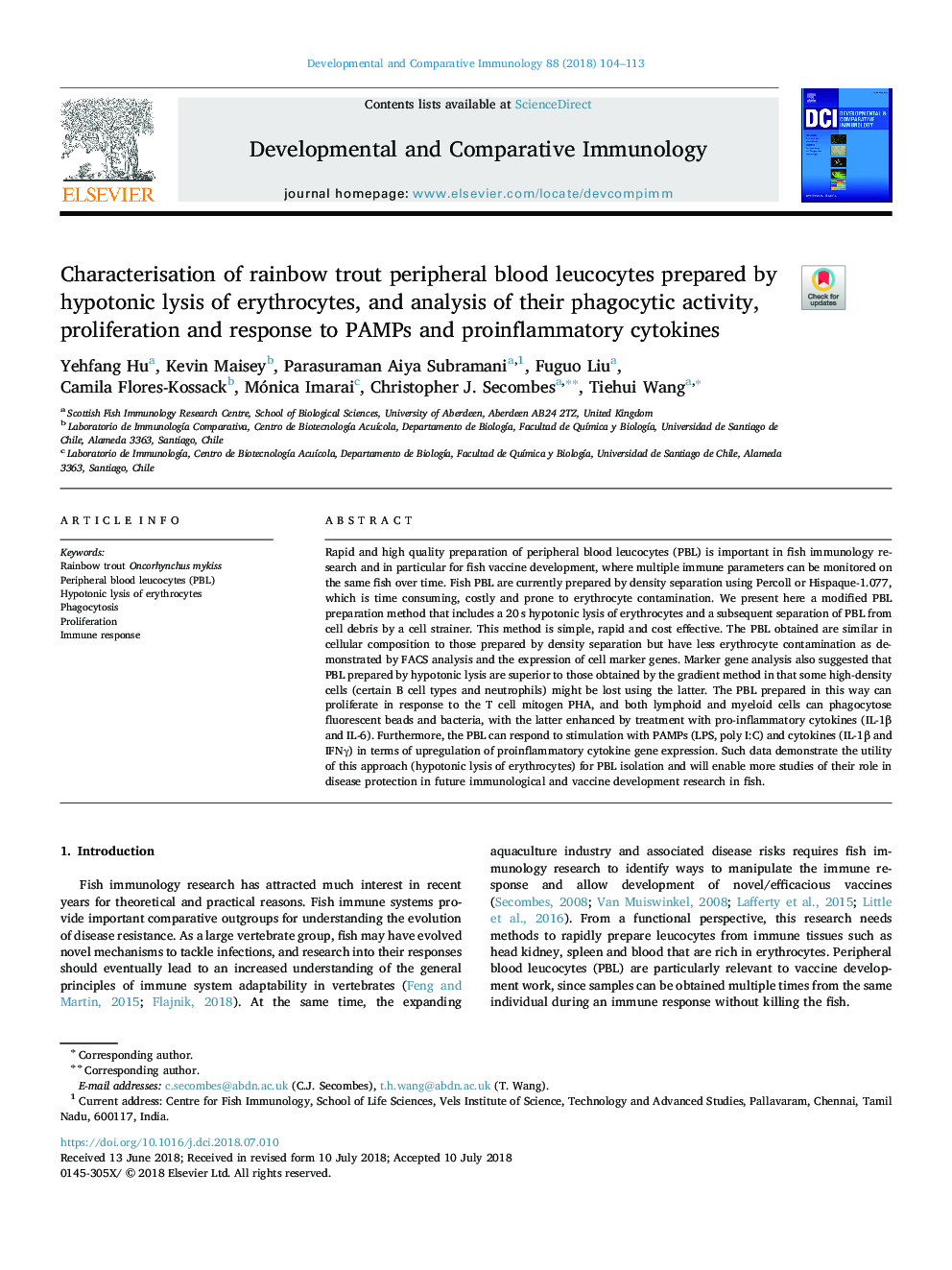| Article ID | Journal | Published Year | Pages | File Type |
|---|---|---|---|---|
| 8497616 | Developmental & Comparative Immunology | 2018 | 10 Pages |
Abstract
Rapid and high quality preparation of peripheral blood leucocytes (PBL) is important in fish immunology research and in particular for fish vaccine development, where multiple immune parameters can be monitored on the same fish over time. Fish PBL are currently prepared by density separation using Percoll or Hispaque-1.077, which is time consuming, costly and prone to erythrocyte contamination. We present here a modified PBL preparation method that includes a 20â¯s hypotonic lysis of erythrocytes and a subsequent separation of PBL from cell debris by a cell strainer. This method is simple, rapid and cost effective. The PBL obtained are similar in cellular composition to those prepared by density separation but have less erythrocyte contamination as demonstrated by FACS analysis and the expression of cell marker genes. Marker gene analysis also suggested that PBL prepared by hypotonic lysis are superior to those obtained by the gradient method in that some high-density cells (certain B cell types and neutrophils) might be lost using the latter. The PBL prepared in this way can proliferate in response to the T cell mitogen PHA, and both lymphoid and myeloid cells can phagocytose fluorescent beads and bacteria, with the latter enhanced by treatment with pro-inflammatory cytokines (IL-1β and IL-6). Furthermore, the PBL can respond to stimulation with PAMPs (LPS, poly I:C) and cytokines (IL-1β and IFNγ) in terms of upregulation of proinflammatory cytokine gene expression. Such data demonstrate the utility of this approach (hypotonic lysis of erythrocytes) for PBL isolation and will enable more studies of their role in disease protection in future immunological and vaccine development research in fish.
Related Topics
Life Sciences
Biochemistry, Genetics and Molecular Biology
Developmental Biology
Authors
Yehfang Hu, Kevin Maisey, Parasuraman Aiya Subramani, Fuguo Liu, Camila Flores-Kossack, Mónica Imarai, Christopher J. Secombes, Tiehui Wang,
